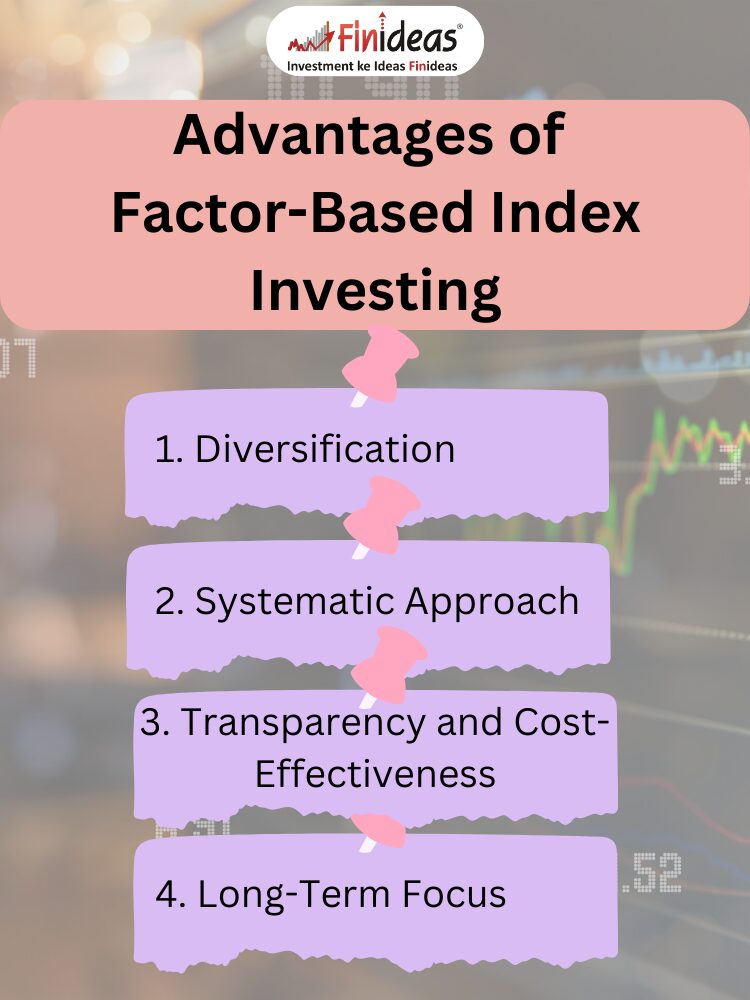Factor-Based Index Investing: Enhancing Long-Term Returns
Welcome to our blog where we delve into the world of investing with a specific focus on factor-based index investing tailored for the Indian market. In today’s financial landscape, investors are constantly seeking ways to enhance their long-term returns while managing risks effectively. Factor-based index investing offers a compelling strategy that aligns with these goals, offering a systematic approach to capturing market premiums over the long haul.
What is Factor-Based Index Investing?
Factor-based investing revolves around the concept of identifying and exploiting specific factors that historically have generated excess returns over the broader market. These factors could include characteristics such as value, momentum, size, quality, and low volatility, among others. By constructing investment portfolios that tilt towards these factors, investors aim to capture additional returns while diversifying risk.
In the Indian context, factors such as value and momentum have demonstrated their efficacy over the years. Value investing, popularized by legendary investors like Warren Buffett, focuses on purchasing assets that are undervalued relative to their intrinsic worth. Similarly, momentum investing capitalizes on the tendency of assets to continue their recent performance trends. Incorporating these factors into index investing strategies can potentially enhance long-term returns for investors.
What are the Advantages of Factor-Based Index Investing?
- Diversification: Factor-based index investing allows investors to diversify their portfolios beyond traditional market cap-weighted indices. By targeting specific factors, investors can spread their risk across different dimensions of the market, potentially reducing overall portfolio volatility.
- Systematic Approach: Factor-based investing follows a systematic and rules-based approach, reducing the impact of emotions and behavioral biases on investment decisions. This disciplined methodology can lead to more consistent outcomes over time.
- Transparency and Cost-Effectiveness: Factor-based index funds typically have lower fees compared to actively managed funds, making them a cost-effective option for investors. Additionally, the transparent nature of index investing provides clarity regarding portfolio composition and performance.
- Long-Term Focus: Factor-based strategies are designed with a long-term horizon in mind. By exploiting persistent factors that have demonstrated their efficacy over multiple market cycles, investors can potentially benefit from sustained outperformance over the years. If you have Long Term focus then you must know about Index Long Term Strategy.
Unique Considerations for Indian Investors
While the principles of factor-based index investing remain consistent globally, there are some unique considerations for Indian investors:
- Market Dynamics: Understanding the dynamics of the Indian market is crucial when implementing factor-based strategies. Factors that perform well in developed markets may not necessarily translate directly to the Indian context due to differences in market structure, regulations, and investor behavior.
- Macroeconomic Factors: Factors such as inflation, interest rates, and government policies can have a significant impact on factor performance in India. Incorporating an understanding of these macroeconomic variables can enhance the effectiveness of factor-based strategies.
- Sectoral Composition: The Indian stock market is characterized by a significant concentration of certain sectors such as finance, IT, and consumer goods. Factor-based strategies need to account for sectoral biases to ensure adequate diversification and risk management.
What factor do you believe holds the most promise for enhancing long-term returns in the Indian market, and why?
Feel free to share your thoughts and insights in the comments section below! Your perspectives are valuable in fostering a deeper understanding of factor-based index investing in the Indian context.
Happy Investing!
This article is for education purpose only. Kindly consult with your financial advisor before doing any kind of investment.


